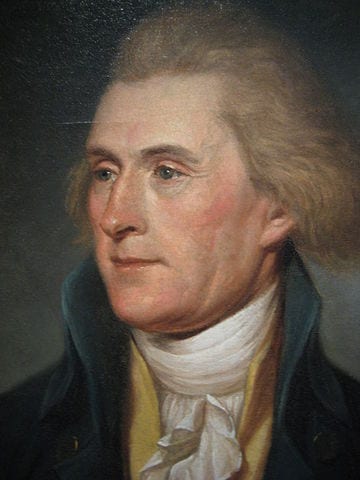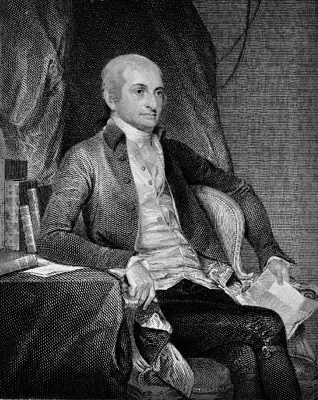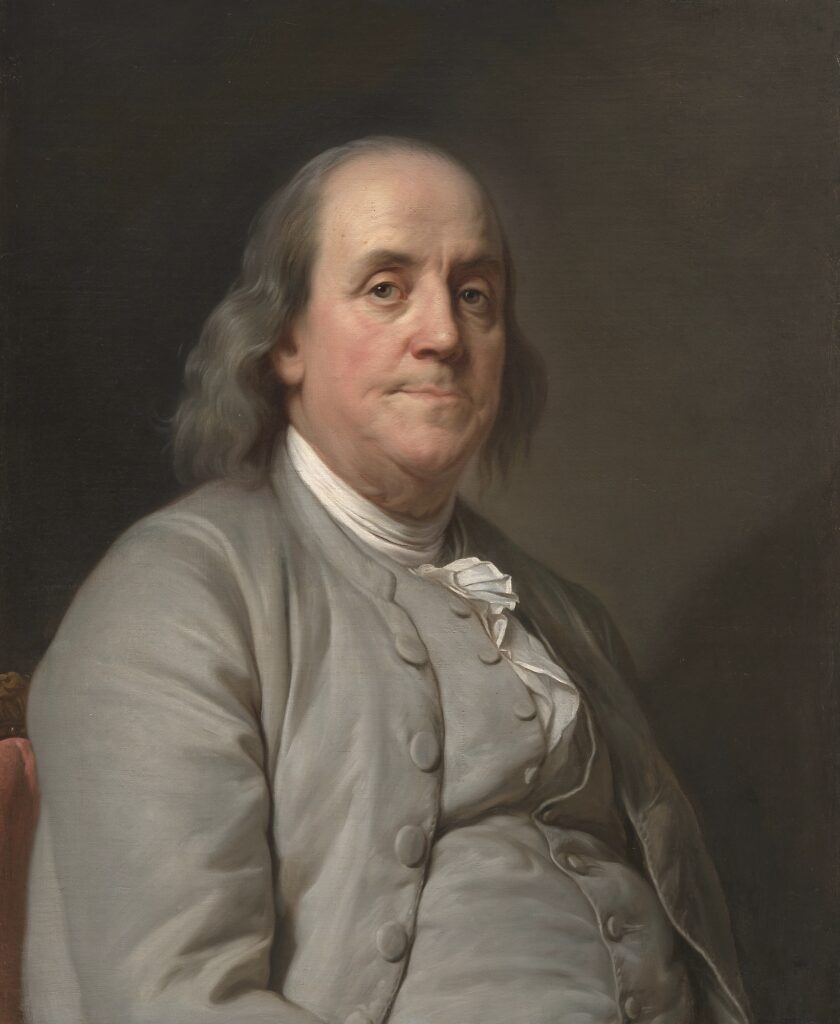This year marks the 240th anniversary of the Treaty of Paris of 1783, which formerly ended the hostilities of the Revolutionary War and won British recognition of the United States of America as an independent nation. The Declaration of Independence of 1776 is rightly celebrated as the defining document of the time for its universal and timeless truths about humanity and governance, and the poetic beauty of its diction. The Articles of Confederation of 1781, our first federal constitution, is almost universally chided in American classrooms for its weaknesses and inefficiency. But another document that could rightly claim considerable historical importance, but which is often passed over with only cursory mention, is the Treaty of Paris of 1783. Perhaps this is because we fail to heed historian Carl R. Trueman’s important admonition that “…we cannot and should not write history as if it is simply a case of identifying the inevitable phases of a society as it moves toward a predetermined goal.”
With the meteoric rise of the United States on the world stage over the last 240 years, it is easy to assume that victory during the War of Independence was a given and that the peace treaty was merely a perfunctory step on the way toward national greatness. Nothing could be further from the truth. Much of the war saw the United States losing the majority of pitched battles with the British Army and it was only 6 years into the war, with Washington’s decisive victory at Yorktown, that victory became clear. The peace negotiations dragged on for more than a year and saw five different ministries (North, Rockingham, Shelburne, Fox-North coalition, Pitt the Younger) take command of Parliament before ratification of the treaties by all the nations involved in the war were completed. To further complicate matters, the interests and egos of five nations (Great Britain, the U.S., France, Spain, and the Netherlands) and several powerful personalities (Adams, Franklin, Jay, the Comte de Vergennes, Lord Shelburne, and Charles Fox) were forced into a delicate dance of shifting sentiments and this made any successful negotiation downright incredible.
The success of the negotiations is undeniable, however—the nascent United States of America ended the war with international recognition, room for territorial growth, and all immediate potential rivals in considerably weakened states. But with Dr. Trueman’s admonition in mind, it is important that amidst celebrating the anniversary of this truly world-changing treaty, we appreciate the perilous process that got us to the signing of the treaty on 3 September, 1783, and the Continental Congress’s ratification of the treaty on 1 January, 1784.

Two years before Yorktown, John Adams was appointed as a minister plenipotentiary with the sole power to negotiate a peace treaty with the British Empire and any commercial treaties for the new United States. Adams was a great champion of the new nation, but his cantankerous and vain tendencies quickly irritated the French, our most important ally in the war effort. After ruffling too many feathers, Adams left France in 1780 for the Netherlands and the French lobbied the United States to send other ministers in his stead. The United States did not recall Adams, who at that point was negotiating with the Netherlands for recognition of the United States as an independent nation and for a commercial treaty. However, they did decide to commission Benjamin Franklin, John Jay, Thomas Jefferson, and Henry Laurens, a prominent South Carolina planter, as ministers plenipotentiary.

Jefferson, for all his key roles during the Revolution, ended up playing no part in the negotiations. Washington, for one, was pleased with this turn of events, as he expressed serious misgivings about Jefferson’s appointment to Robert Livingstone in early 1783. Henry Laurens was captured at sea by the Royal Navy and spent virtually the entire time as a prisoner in the Tower of London. Interestingly, he was bailed out of prison by the original British negotiator, Richard Oswald, as the two of them had lucrative business connections involving the shipment of commercial goods and slaves. Laurens’ only contribution was the inclusion of a clause that restricted evacuating British forces from taking away property and slaves as they left the United States. This caused tensions with Adams, Jay, and Franklin, all of whom had growing antislavery sentiments. However, they knew that Laurens had the pulse of the Southern elite and would need that clause to prevent a fracturing of the Union, so they allowed its inclusion.
Adams spent considerable energy in the Netherlands to gain recognition for the United States and a favorable commercial treaty with the Dutch Empire. He boasted to Abigail Adams that his name was publicly lauded in the Netherlands and that the treaties he negotiated with the Dutch were truly historic, claiming, “I shall recollect Amsterdam, Leyden, and the Hague with more Emotion than Philadelphia or Paris.” Fresh off his triumph in the Netherlands, Adams was none too pleased to be working with Franklin, whom he felt was of poor character, too Francophilic, and not up to the task of negotiating a proper peace for the United States. Adams also chafed at Franklin’s maneuver to make one of his grandsons a secretary to the proceedings, though he effectively did the same thing with his son, John Quincy. Upon arrival in Paris, Adams refused to see the elderly and ailing Franklin, believing that his dignity and protocol dictated that Franklin come to see him. He was leery of Jay too, having developed a poor opinion of him during their time in the Continental Congress years earlier. Adams was even less a fan of the French and the political intrigues of the Comte de Vergennes, the chief French negotiator.

Despite Adams’ earned reputation of being a curmudgeon and his distaste for the French, John Jay proved to be even more shockingly disdainful of his European counterparts. Jay initially went to Spain and left with nothing but contempt for their claims of poverty while receiving ship after ship loaded with silver from the Americas, and for their designs on the Mississippi River. Originally a more moderate Patriot with warm sentiments towards the Franco-American alliance of 1778, Jay came to hold the French, especially Vergennes, in suspicion believing that the French were looking to merely replace British hegemony in North America with a Gallic one. He was further exasperated with the infighting amongst British MPs like Lord Shelburne and Charles Fox that complicated negotiations. Jay eventually won grudging respect from Adams with his hardline negotiating on behalf of the United States. While the two men had very different demeanors and styles of negotiation, Jay and Franklin worked effectively together.

Benjamin Franklin was an affable and capable diplomat, but despite Adams’ misgivings about his relationship with France, Franklin had a fragile relationship with our closest military ally at the time. Franklin was popular in the salons and with the cosmopolitan, liberal aristocrats, but the French king made chamber pots with Franklin’s face on them. Beneath his easygoing demeanor, Franklin was hawkishly optimistic about the United States’ future and did not want France to play an overbearing role in that. To that end, he shocked Adams by not telling the French that the United States and the British Empire were already negotiating—a clear violation of terms in the Franco-American Treaty of 1778. Franklin was gambling significantly with this tactic—it gave the United States the best shot at independence, but Vergennes had spies in England so the secret negotiations were not so secret in reality, and Franklin was still angling for more French monetary support. Remarkably, the United States avoided a conflict with France over the secret negotiations and managed to secure more money. Perhaps most challenging for Franklin was the fact that his estranged Loyalist son, William, was in London and openly advocating for Loyalists to receive compensation, frustrating the elder Franklin’s opposition to such compensation.
Through this labyrinth of national interests, personal rivalries, and ingrained biases, Adams, Franklin, and Jay successfully bargained for a treaty that could have scarcely been better for the United States. While the future greatness of the United States on the world stage was never guaranteed, the Treaty of Paris of 1783 should be celebrated for creating the possibility of such a future performance, and for its unlikely genesis at the hands of colorful characters who put their differences aside for the benefit of their nation.

Greg Balan is a 2016 James Madison Fellow for Florida, the 2022 State History Teacher of the Year for the Florida State Society of the Daughters of the American Revolution, and a proud MAHG graduate.

